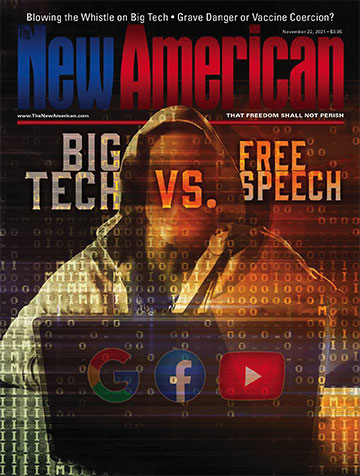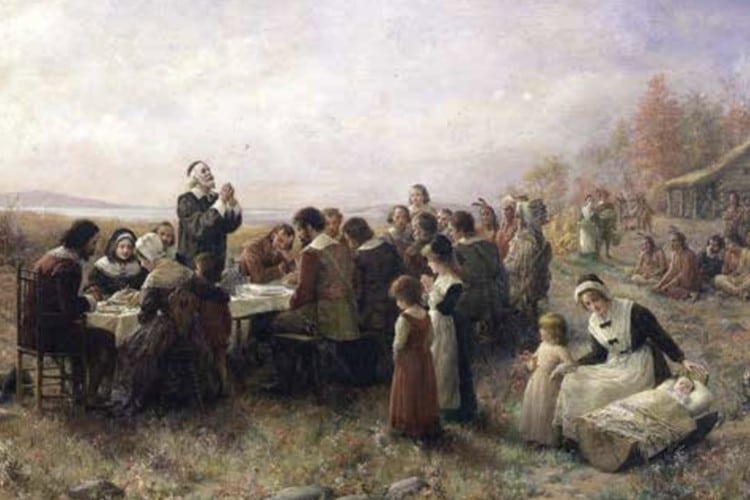Giving Thanks in Times of Trouble
In a time of economic freefall, of rampant lawlessness on our southern border and in our cities, of dangerous new rivals abroad such as Communist China and Islamist Iran, and of a stubborn pandemic that has become a pretext for eradicating individual liberty, it might seem that Americans in 2021 have little to be thankful for. Those of us whose memory reaches back a few decades find the America of today to be virtually unrecognizable, with a culture seemingly hostile to values and institutions once taken for granted. With a government now unable and unwilling to maintain even a semblance of civic order, public and private debt soaring to incomprehensible heights, and moral and civic virtue all but banished from politics and popular culture, the America that rose to become the greatest nation in history in the 20th century appears poised for collapse in the 21st. Small wonder, then, that in recent years, Thanksgiving has been reduced to a placeholder between two holidays that better epitomize consumption and secular festivity, temporary escapes from a world spinning out of control.
Considering the origins of Thanksgiving, it was once widely taught that the holiday arose as a memorial to the Pilgrims who first settled New England, who, in spite of perilous circumstances in an unforgiving wilderness, managed, with the help of sympathetic Indians, to harvest, hunt, and otherwise acquire enough food to survive their first brutal winter on the American continent. Less remarked, amid the cornucopias, turkeys, and other festive symbols, are the circumstances that drove them to the New World in the first place — and the conditions they left behind in the Old.
Conditions in Europe in the 1620s were nothing short of calamitous. Central Europe was newly embroiled in what would come to be known as the Thirty Years’ War, a desolating conflict between Catholic and Protestant countries that would drag on until 1648, taking an unprecedented toll in life, not only from battlefield dead, but also from widespread starvation and disease occasioned by the bitter, protracted contest.
JBS Member or ShopJBS.org Customer?
Sign in with your ShopJBS.org account username and password or use that login to subscribe.

 Subscribe Now
Subscribe Now
- 24 Issues Per Year
- Digital Edition Access
- Exclusive Subscriber Content
- Audio provided for all articles
- Unlimited access to past issues
- Cancel anytime.
- Renews automatically

 Subscribe Now
Subscribe Now
- 24 Issues Per Year
- Print edition delivery (USA)
*Available Outside USA - Digital Edition Access
- Exclusive Subscriber Content
- Audio provided for all articles
- Unlimited access to past issues
- Cancel anytime.
- Renews automatically


